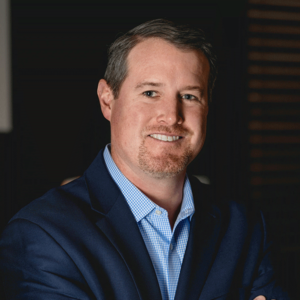
How Coronavirus Is Impacting Lower Middle Market M&A Activity
Last week, Axial convened a virtual roundtable of members to review the impact of the coronavirus pandemic on lower middle…

Kaulig Capital is a new family office which manages the assets of Matt Kaulig, founder and chairman of LeafFilter Gutter Protection Systems, which today brings in over $300 million in annual revenue. Kaulig sold 70% of the business to Gridiron Capital in 2016. We talked to Cameron Miele, Managing Director at Kaulig Capital, about how the investment landscape is changing, why being part of a new family office is exciting, and more.
Since our family office is so new and relatively small, we really don’t have the resources to try to take an opportunity from investment banking memo, to management presentation, to letter of intent, to purchase agreement all the way to a close. I tell people, “I’d drown myself in diligence and take myself out of the market for six months.” What we’re really looking for today is to find good partners that we can work with. That could be fundless sponsors, business owners looking to take chips off the table, operators who want to buy a business, multi-family office deals, or club deals. But we’re really looking for somebody else to be the beast of burden when it comes to the transaction. We can be an equity filler, either a control position or a minority position, but we want it to be a meaningful stake where we can have some board representation to help craft the company’s strategy and effectuate change if we see an issue.
LeafFilter is our main holding at Kaulig Capital and its the largest gutter protection company in the country with 1600 employees and 48 sales offices. We’re adding a new sales office every month. Since the family office was established, we’ve made approximately 13 additional investments. To date they’ve been relatively modest co-investments, since we’re still really getting our feet underneath us.
We’re generalists but we’re looking primarily to business services, manufacturing, industrial distribution, and consumer-facing businesses. We’re not big tech guys, we don’t do a lot of restaurant deals or oil and gas or heavy industry businesses like foundries.
What I like about it is that we’ve got a whiteboard in front of us and we’re sketching out how we want to invest, check sizes, deals we want to look at and how we’re going to market. The world is our oyster right now and we’re just figuring it out and it’s been a lot of fun. Plus, Matt Kaulig is 45, full of energy, and really wants to get out there and aggressively invest.
Family offices are becoming much more professional. If you look at a lot of the original family offices, I think they were dominated by family members and they were dabbling. They might have had one or two legacy companies that they owned and they were dabbling in real estate and dabbling in private equity making small investments, saying, “No,” a lot more than they were saying, “Yes.”
I think family offices today have outside professional managers of the family capital. Clearly there’s still some family representation, but I think they’ve gone from being quasi-private equity and private real estate investors to full-time private equity and real estate investors. Family offices today act like and compete with traditional private equity. They’ve got the capital, they’ve got a professional management team, they know how deals are done, they know what due diligence looks like and what valuations look like.
The way we’ve always been very successful in winning deals is by marketing ourselves as patient capital that can also be very flexible when it comes to the capital stack. We make money by growing the business and giving everybody an opportunity; we’re not just thinking about an exit the day we buy the business. We have a much longer-term focus on how to grow the business rather than, “Let’s make three acquisitions, stick it all together, try to flip it and make a ton of money.” That sort of message resonates with selling shareholders that care about their legacy and the legacy of the business they or a family member may have started.
Because we’re investing our own money each deal is special to us, each deal needs to stand on its own, and each deal is meaningful.
I think it would create opportunities for us. The bull market has to end. I think the new administration has done a lot to bolster the market. The reduction in regulations, low unemployment, America-first focus has given the economy a lot of steam, but it just has to run out of steam eventually. It’s a natural economic cycle. But I think that will create a lot of opportunities for us because there will be a lot of private equity firms that have been forced to put money to work and who have purchased companies at very high valuations — unjustifiable valuation. They’ll be looking to potentially monetize their winners to make up for their losers. There could be bankruptcies. There could be spinoffs of pieces of businesses. I think when there’s a downturn family offices can be very successful because they can be very opportunistic.
